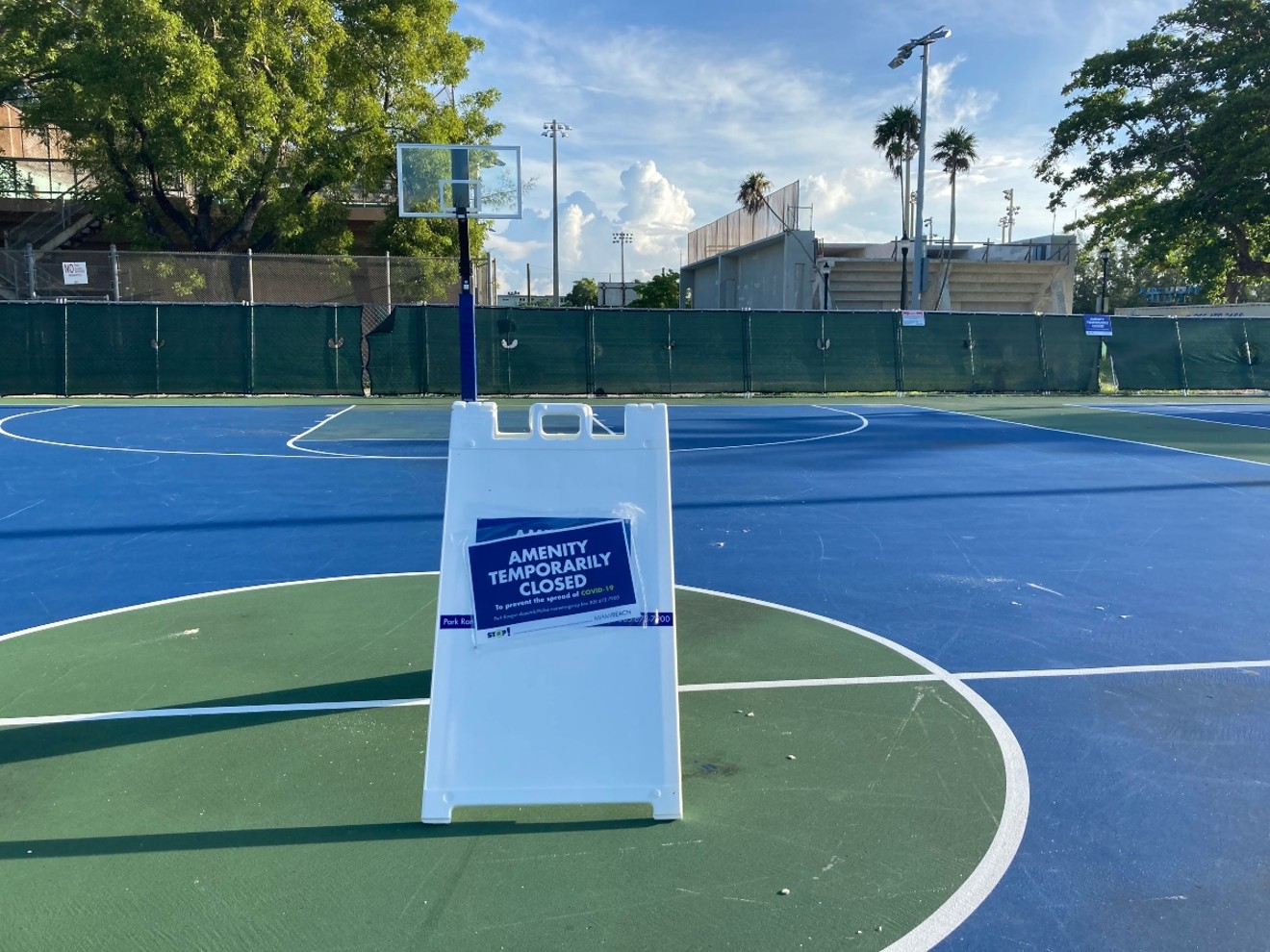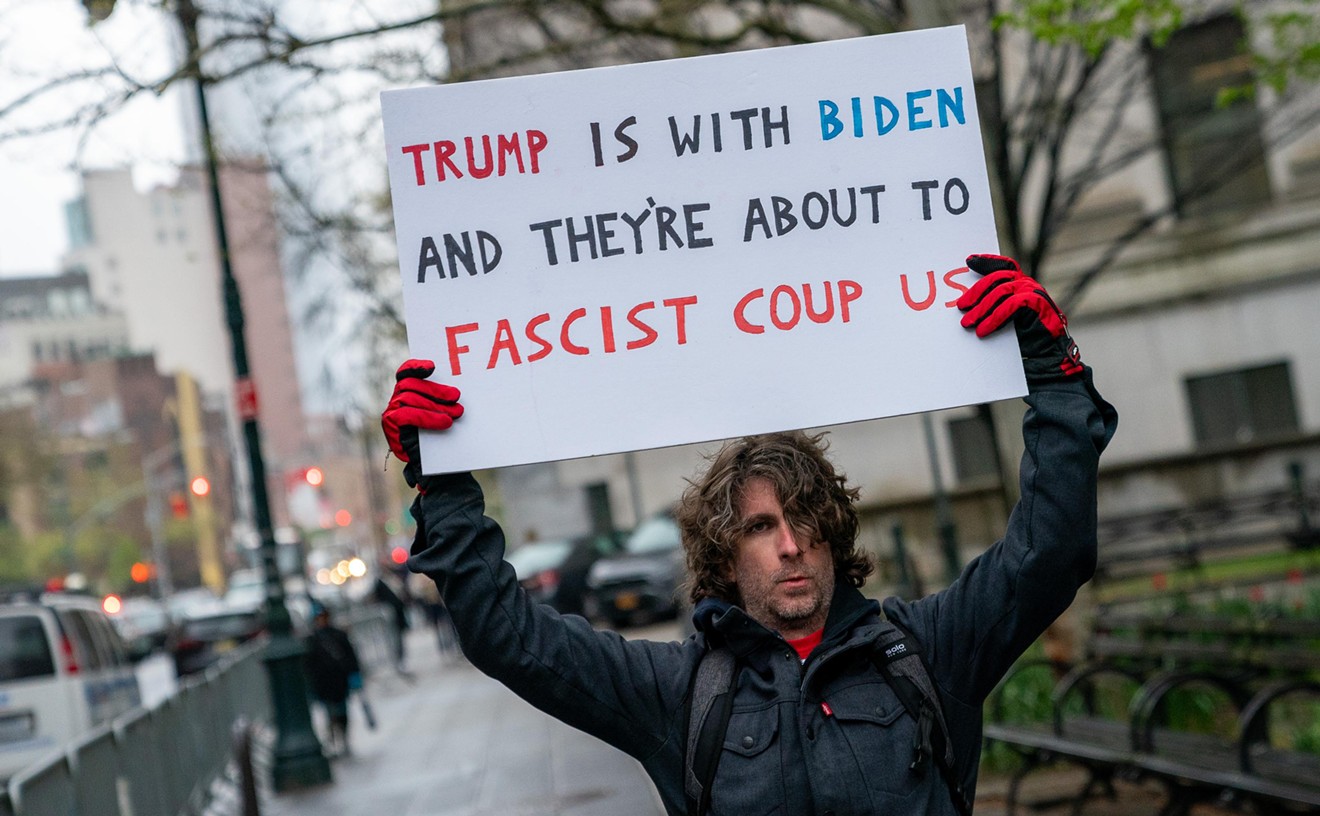"They shut it down again, without pretty much any other information," Gilles tells New Times.
On August 4, the City of Miami Beach amended its emergency order to ban all forms of public basketball.
"All solo or group activity related to basketball, including, but not limited to, dribbling or shooting basketballs, is hereby PROHIBITED," the amendment states.
On March 19, as the novel coronavirus began to spread in Florida, Miami-Dade County closed public parks. When County Mayor Carlos Giménez reopened the parks on April 29, basketball play was permitted with some safety guidelines, although the county's 34 municipalities could choose to enforce stricter rules.In an effort to curb #COVID19 cases, the City of Miami Beach has updated its Emergency Order to close all basketball courts in city parks, effective immediately.
— City of Miami Beach (@MiamiBeachNews) August 4, 2020
Learn more in today's daily COVID-19 update: https://t.co/e7crQrjGrB pic.twitter.com/phPccqOBME
Miami Beach was one city that chose to keep basketball courts closed, waiting until May 18 to make the courts available again. The reopening came with conditions: Players were restricted to individual play, with no more than three players per half-court. Players were also expected to socially distance from others and bring their own ball. Team games were banned.
Melissa Berthier, a spokesperson for Miami Beach, says city leaders chose to close the courts again this month because basketball players weren't following those rules.
"The city removed the rims from the basketball courts to prevent the many games with excessive players and no social distancing that were occurring," she writes in an email.
Some players find the ban unfair.
"It's kind of like a slap in the face," says Martin Ogawa, who typically plays at Normandy Isle Park three times a week. "This doesn't make any sense."
Ogawa points out that beaches and boat ramps have reopened, and that soccer fields remain open.
"Why did the basketball players get singled out?" he asks.
While the novel coronavirus is still being studied, scientists have seen little evidence of outdoor transmission. And touching infected surfaces is no longer thought to be the main way the virus spreads. In other words, touching a shared basketball is not as risky as it once seemed, although transmission could still be possible. Guidelines from the Centers for Disease Control and Prevention state that players can reduce their risk by wearing masks and maintaining a safe distance from others.
So far, the NBA has been able to resume its season without much ado. As of Wednesday, the league said zero players had tested positive for COVID-19 for the fourth consecutive week.
Ogawa tells New Times he was so confounded by Miami Beach's policy that he began to question whether racial bias was at play. Last week, he tweeted at Mayor Dan Gelber and several city commissioners asking for an explanation.
"I think that there's some stereotypes out there regarding who plays on the courts," Ogawa says.
In her email, Berthier, the city's spokesperson, says the basketball ban was based strictly on safety concerns.It feels like implicit bias against this demographic group of young basketball players. The NBA Season just started and the @MayorDanGelber takes down the rims , leaves the beaches and boat docks open. Perhaps closing the Courts earlier in the evening might be a better solution.
— Martin Ogawa (@martinog) August 5, 2020
"The notion that this action was based on race is unequivocally not true," she writes.
For now, it's unclear when the courts will reopen. Gilles says that although he's disappointed by the city's decision, he understands that basketball carries a higher risk than tennis or golf. But given the trajectory of cases in Florida, he wonders if he might have to wait until next year to resume play at Normandy Isle Park.
"Until we find a vaccine, there will be no reduction in cases," he says. "People know what's happening — they pay attention. The question is: What's the limit? Where do you draw the line, and which responsibility do you give to people?"












